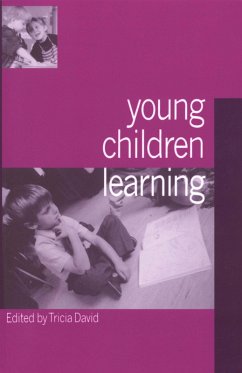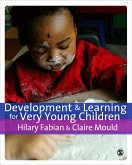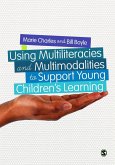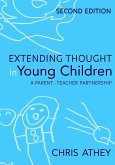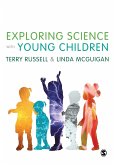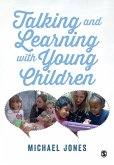`I particularly enjoyed Judith Roden's chapter "Young Children Are Natural Scientists" especially her thoughts on children's drawings, which puncture some popular assumptions' - Times Educational Supplement, Friday Magazine
`This expertly argued and fascinating book seeks to redress the balance; it places the child firmly at the centre of the educational process and examines in detail the many and varied factors (such as health and physical development, play, stress, and early intervention) which affect the way in which the young child learns and develops' - Who Minds
`Tricia David, an internationally recognized expert in early years education, has brought together 11 tutors from Canterbury Christ Church University College to "encourage debate and disagreement".... It has... some absorbing and helpful contributions which both bring forward the debate in early years education and also may cause readers to reappraise their own practice, possibly as a result of disagreeing with one or other contributors' - International Journal of Early Years Education
Young Children Learning brings together current thinking on young children's learning, with ideas about the curriculum for children aged 0 to eight years old. Areas covered in this book include: play; health and physical development; early intervention; stress; children understanding their worlds; bilingualism; children's spiritual development; national identity; young children as natural scientists; assessing learning; the needs of parents, children and teachers; and childhood in changing societies.
Written by experienced practitioners from the centre for International Studies in early childhood, Young Children Learning shows that in the earliest years of childhood, all children should experience the delight which can be part of effective pedagogy - pedagogy which takes account of the child's individuality and development, in the context of changing socio-cultural constructions of childhood.
Hinweis: Dieser Artikel kann nur an eine deutsche Lieferadresse ausgeliefert werden.
`This expertly argued and fascinating book seeks to redress the balance; it places the child firmly at the centre of the educational process and examines in detail the many and varied factors (such as health and physical development, play, stress, and early intervention) which affect the way in which the young child learns and develops' - Who Minds
`Tricia David, an internationally recognized expert in early years education, has brought together 11 tutors from Canterbury Christ Church University College to "encourage debate and disagreement".... It has... some absorbing and helpful contributions which both bring forward the debate in early years education and also may cause readers to reappraise their own practice, possibly as a result of disagreeing with one or other contributors' - International Journal of Early Years Education
Young Children Learning brings together current thinking on young children's learning, with ideas about the curriculum for children aged 0 to eight years old. Areas covered in this book include: play; health and physical development; early intervention; stress; children understanding their worlds; bilingualism; children's spiritual development; national identity; young children as natural scientists; assessing learning; the needs of parents, children and teachers; and childhood in changing societies.
Written by experienced practitioners from the centre for International Studies in early childhood, Young Children Learning shows that in the earliest years of childhood, all children should experience the delight which can be part of effective pedagogy - pedagogy which takes account of the child's individuality and development, in the context of changing socio-cultural constructions of childhood.
Dieser Download kann aus rechtlichen Gründen nur mit Rechnungsadresse in A, D ausgeliefert werden.
Hinweis: Dieser Artikel kann nur an eine deutsche Lieferadresse ausgeliefert werden.

